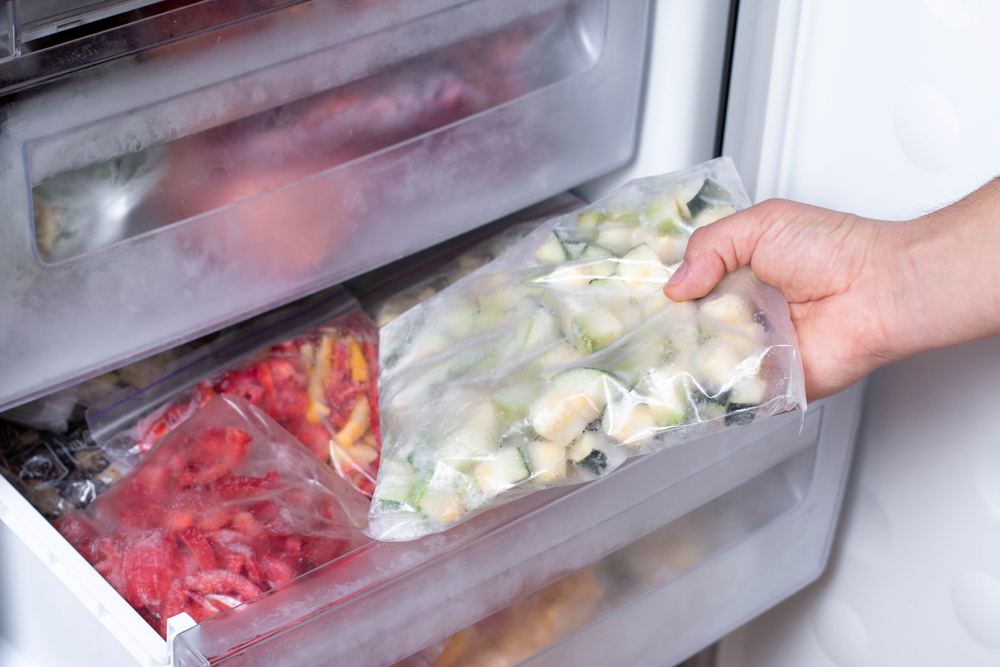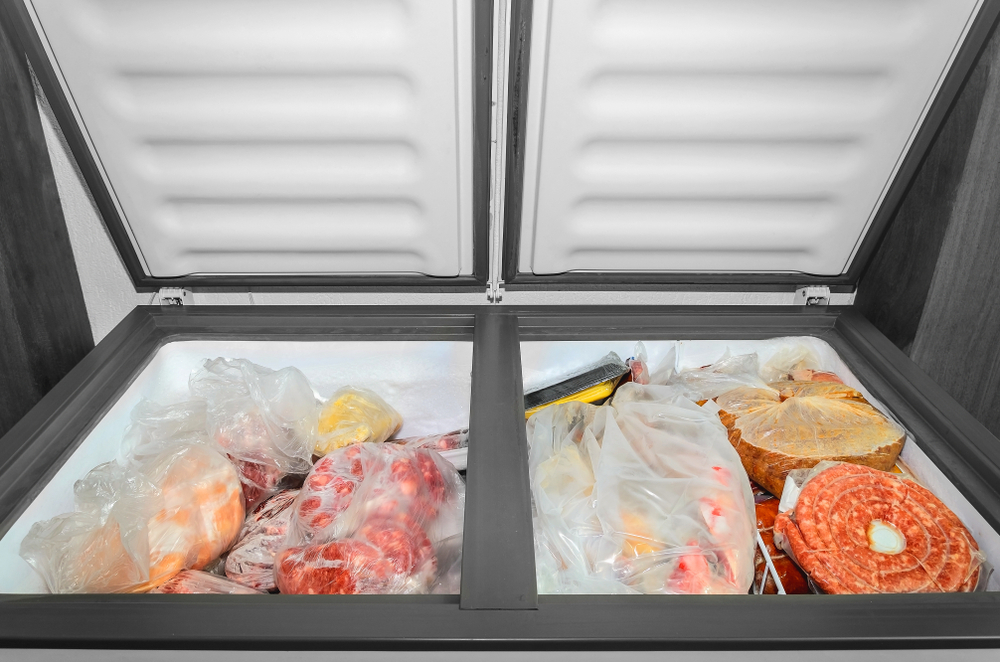Can freezer be too cold? While we often associate freezers with keeping our food fresh and storing it for a long period of time, a freezer may really get too cold. While storing food at a lower temperature can appear beneficial, doing so too frequently can be harmful to the quality and safety of what’s kept there.
This article explores the ideal temperature range for effective and secure freezing, as well as potential problems that can happen when a freezer is too cold.
What temperature is too cold for a freezer?
A freezer operates best at a temperature of around 0 degrees Fahrenheit (-18 degrees Celsius). The freezer may get too cold, though, if the temperature falls far below this suggested range. Although there isn’t a set limit for what constitutes “too cold,” a freezer temperature of less than -10 degrees Fahrenheit (-23 degrees Celsius) is typically regarded as extremely low and can have unfavorable effects.
These dangerously low temperatures have the potential to harm the freezer itself, as well as impact the flavor and texture of frozen foods. They can also result in freezer burn. To achieve ideal storage conditions, it’s critical to strike a balance between keeping food adequately frozen and avoiding temperatures that are too low.

Why is your freezer too cold?
A freezer can become too cold due to various factors. There can be several reasons why a freezer might become too cold:
- Altered Temperature Settings: If the temperature settings have accidentally been dropped, the freezer may become too cold.
- Malfunctioning Temperature Sensor: Over time, the freezer’s temperature sensor may develop defects or become inaccurate. This may result in the freezer operating nonstop and maintaining a very low temperature.
- Defective Thermostat Control: A thermostat control issue could cause it difficult to maintain a stable temperature in the freezer. It can fail to stop the cooling system after the required temperature is reached, which would make you feel extremely cold.
- Blocked or Faulty Air Damper: The air damper controls the passage of cold air from the freezer to the refrigerator compartment. It may be blocked or defective. It can upset the natural balance of airflow and make the freezer overly chilly if it becomes clogged or malfunctions.
To avoid potential harm to the food and the freezer itself, it’s important to fix these problems right away. It is advised to visit a qualified appliance repair specialist for diagnostic and repairs if you suspect any of these issues.
How do you know your freezer is too cold?
There are various signs to know if your freezer is too cold or not, these are:
- Frozen Food Damage: If you notice significant freezer burn or ice crystals forming on your frozen food, it is a sign that the freezer temperature may be too low. Freezer burn occurs when the moisture in the food evaporates due to freezing temperatures, leading to changes in texture, taste, and quality.
- Difficulty Opening Containers: When the freezer is excessively cold, liquids can freeze and expand, causing containers to become difficult to open or even crack under pressure. If you experience resistance or find containers damaged upon retrieval, it may indicate that your freezer is too cold.
- Ice Buildup: While some frost buildup is normal, excessive ice accumulation can be a sign of overly cold freezer temperatures. If you notice thick layers of ice forming on the walls, shelves, or around the freezer’s seal, it suggests that the freezer is colder than necessary.
- Increased Energy Consumption: An excessively cold freezer may consume more energy than usual. If you notice a significant spike in your energy bills without any other apparent cause, it could be an indication that your freezer is working harder than needed due to low temperatures.
- Inability to Maintain Proper Temperature: If you set the freezer to a specific temperature, but it consistently drops below that setting, it suggests that the freezer is too cold. This can be confirmed by using a separate thermometer to measure the internal temperature.
How can you fix a freezer that has become too cold?
If your freezer has become too cold, there are several steps you can take to address the issue:
- Adjust the Temperature Settings: Make sure your freezer’s temperature control settings are at the optimal level by checking the controls. To avoid being too cold, gradually raise the temperature setting to a more suitable level. For the suggested temperature range, see the freezer’s personal guide or the manufacturer’s instructions.
- Inspect and Clean the Air Damper: A malfunctioning or blocked air damper can interrupt airflow and add to an excessive amount of chilly. Verify that the air damper is free of any impediments by visually inspecting it. If cleaning isn’t sufficient, go to the freezer’s handbook for guidance on how to repair or swap out a broken air damper.
- Test and Calibrate the Thermostat Control: If the thermostat control is malfunctioning, it may inaccurately regulate the freezer’s temperature. You can try calibrating the thermostat by following the instructions in the freezer’s manual. If calibration doesn’t resolve the issue, consider contacting a professional technician for further inspection or replacement of the thermostat control.
- Check the Temperature Sensor: A faulty temperature sensor can cause the freezer to run continuously, leading to excessive coldness. Consult the freezer’s manual for information on the location of the temperature sensor. Inspect it for any signs of damage or misalignment. If you suspect a faulty temperature sensor, it’s advisable to seek professional assistance for repair or replacement.
- Monitor and Adjust: After making any adjustments or repairs, monitor the freezer’s temperature over the next few days. Use a separate thermometer to verify the accuracy of the temperature inside the freezer. If necessary, continue to make small adjustments to the temperature settings until you reach the desired temperature.
If you’re unsure or uncomfortable with troubleshooting and repairing the freezer yourself, it’s recommended to contact a professional appliance repair technician. They can diagnose the issue accurately and provide the necessary repairs to restore your freezer to its optimal temperature.
Conclusion
A freezer may become extremely cold. Although freezing temperatures are required to preserve food and prevent bacterial development, going too low may have certain unfavorable impacts. Extremely low temperatures can result in freezer burn, which dehydrates food and lowers its quality.
Additionally, it might make some meals overly tough and challenging to eat. Moreover, running a freezer at exceptionally low temperatures requires more energy, which raises your power costs.
